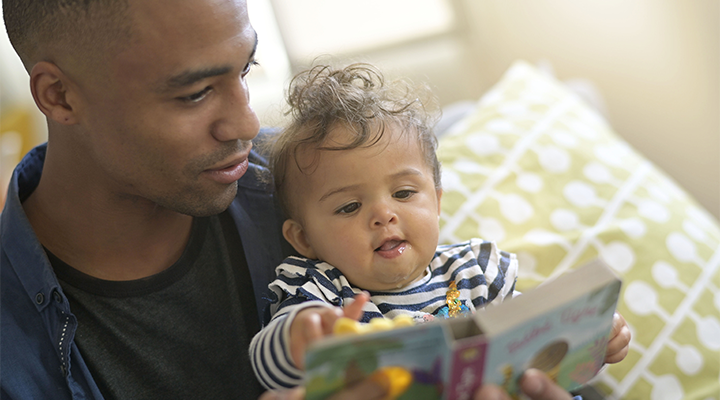Talking, Singing, Reading, & Playing
It may seem like your newborn is too young to enjoy your talking, singing, reading, and playing, but it’s never too early to start. Plus, these activities help your baby learn.
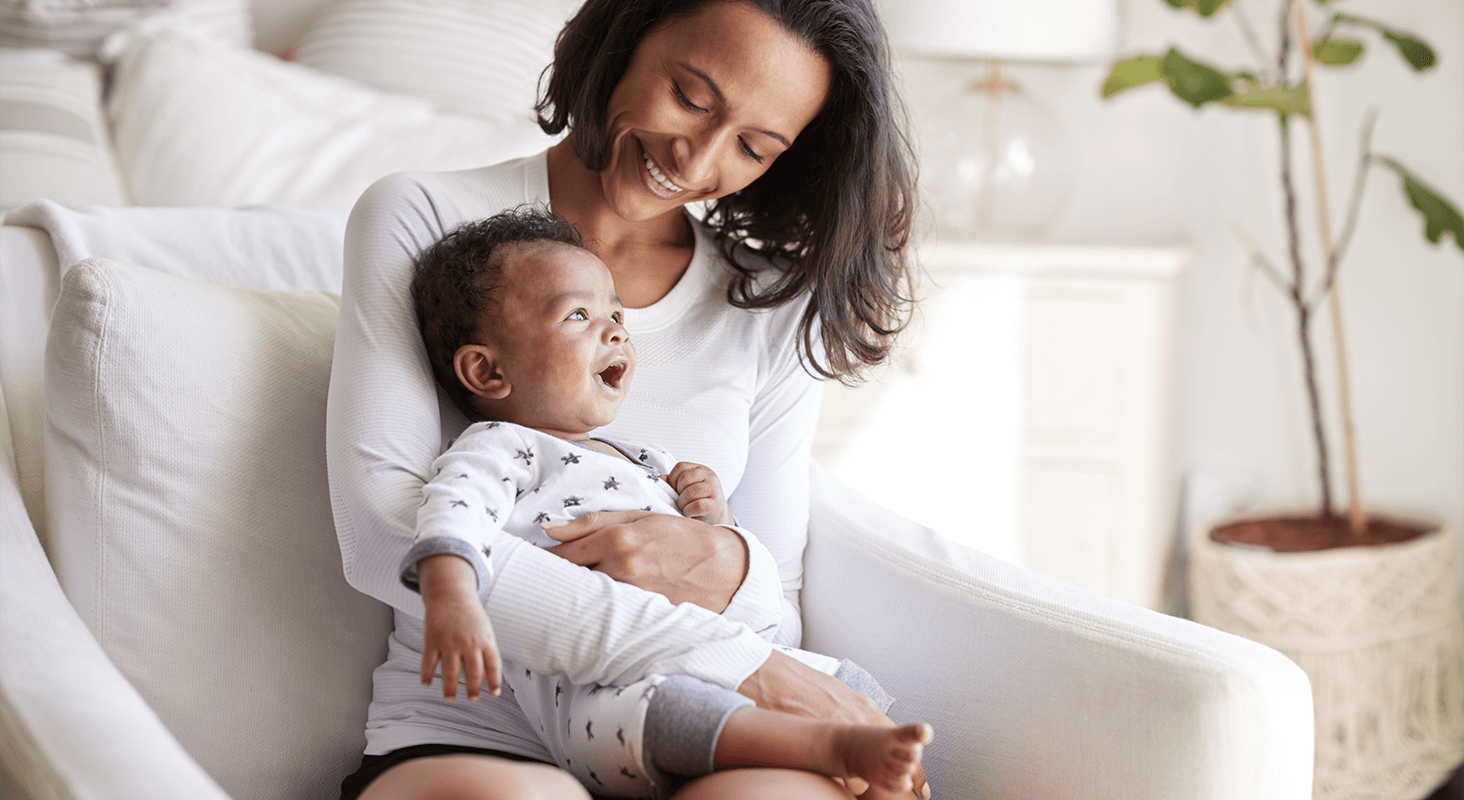
The Power of Parent Talk
You are the most important person to your baby. Your baby loves to hear your voice, so talk with them as much as you can! The “conversations” will feel one-sided at first, but as your baby grows, they will participate more and more, at first with coos and smiles, then babbles and giggles, and eventually with words and even jokes!
 TIP FOR PARENTS
TIP FOR PARENTS
Babies' color vision is just developing in the first few months, so sharp contrasts and black-and-white picture books are easier for them to see early on.
Every word you say builds your baby's brain
Unlike their heart or lungs, your baby's brain is unfinished at birth. Even before your child can speak, the words they hear from you build the connections in their brain that they will use to think and learn for the rest of their life. In fact, during the first years of life, more than 1 million new brain connections are formed every second. That's why it's so important to interact with your baby from birth.
USE THE THREE T’S TO MAKE THE MOST OF YOUR TALK AND INTERACTION:
TUNE IN.
Be in the moment. Notice what your child is paying attention to and talk about it. When your child’s focus changes, change your words to match.
TALK MORE.
Use a wide variety of words. Think of your baby’s brain like a piggy bank: Every word you say is a penny in their bank. The more you talk, the richer they’ll become.
TAKE TURNS.
Engage your baby in conversation. Respond to their eye contact, babbles, and gestures as though they were words. When you do, their first words will come sooner.
When you use all three Ts at once, you build the strongest possible brain for your child.
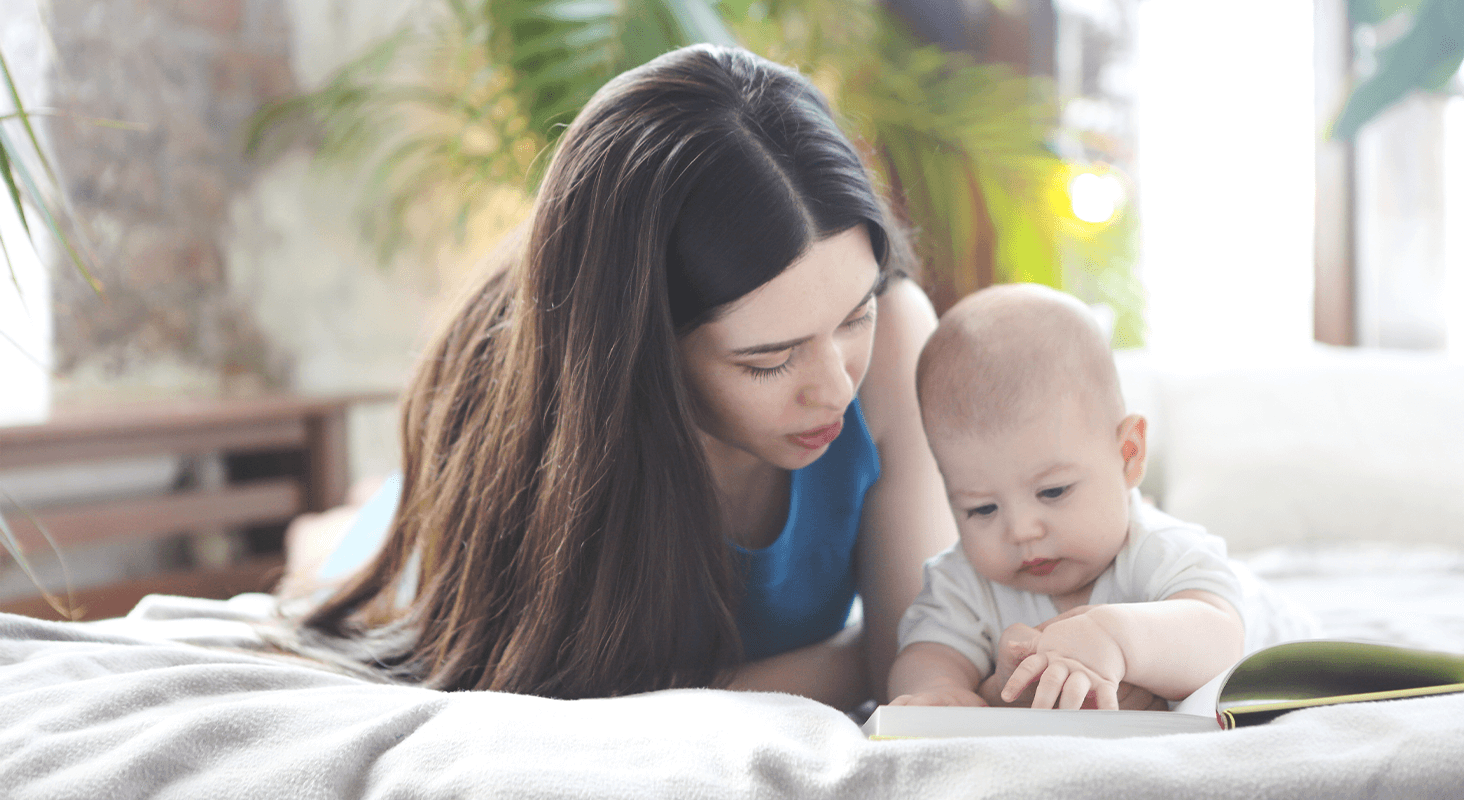
 TO KEEP IN MIND
TO KEEP IN MIND
Do you have a favorite children's book? A song you love to sing? Who else will share books and stories and conversations with your baby?
The power of a good book
Reading with babies is a great way to help them learn language and be more prepared for when they get to school. But it does so much more than that! They learn about the world and the people around them. Stories help them develop empathy and “see” themselves in places they never imagined. But, for really little ones, it's more basic than that.
Sharing books together strengthens the relationships between babies and the people who love them.
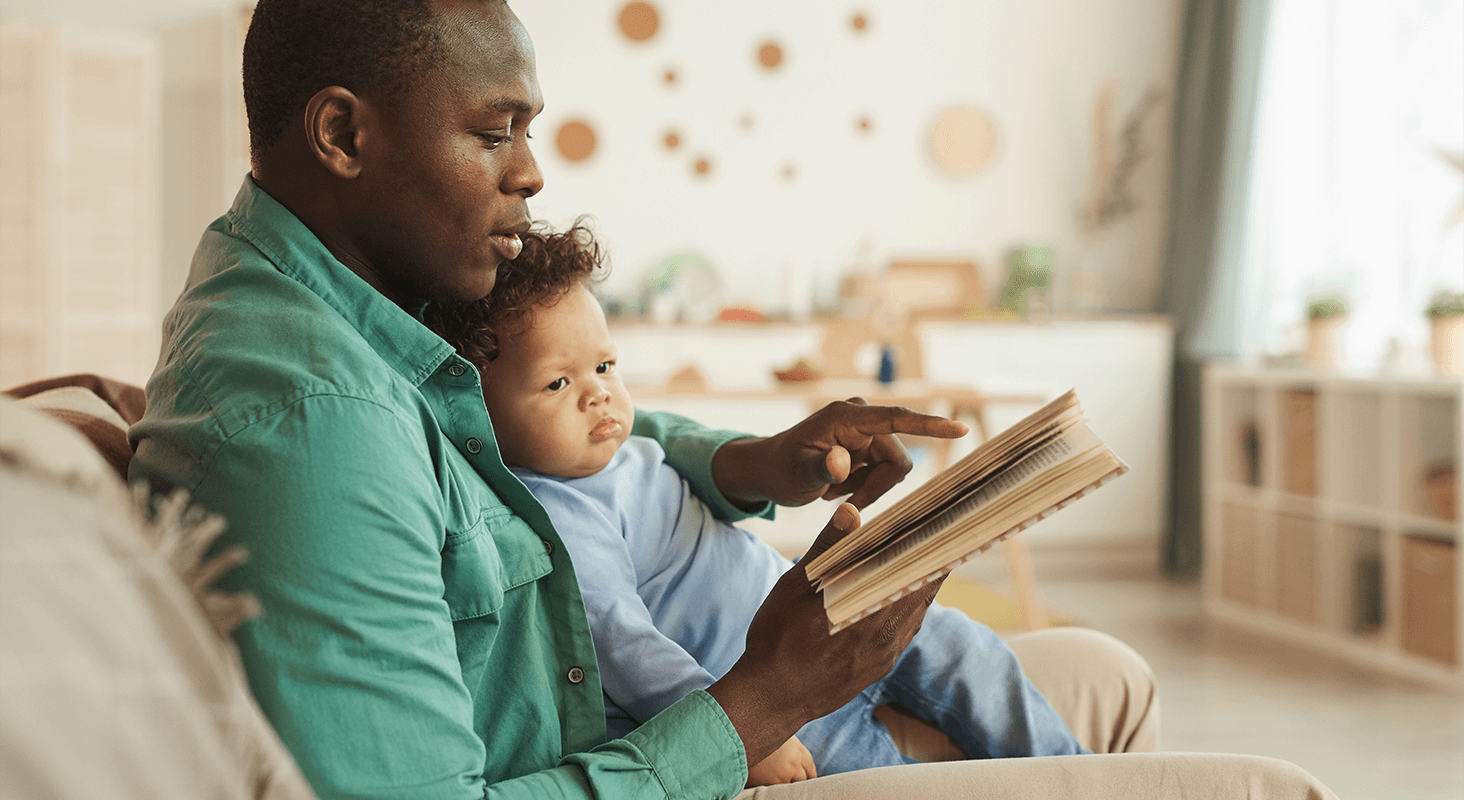
How do I read with my young baby?
The benefits of reading together come from the interaction between you and your baby. Don't worry about reading all the words on the page. Talk about the pictures. Ask questions (and answer them, too!). When they are young, babies' vision is best at about 2 feet away, so keep the book close and make sure your baby can see your face and you can see theirs! It may feel a little awkward at first, but it gets easier.
Books will give you lots of things to talk about. You can also make up your own stories! Depending on the book and how you and your baby are feeling, reading can be calming or exciting. And it doesn't need to take long—a few minutes is enough. Most of all, it should be a special time together. If you and your baby are not having fun, put the book away and try again another time.
Older children can join the reading fun, too!
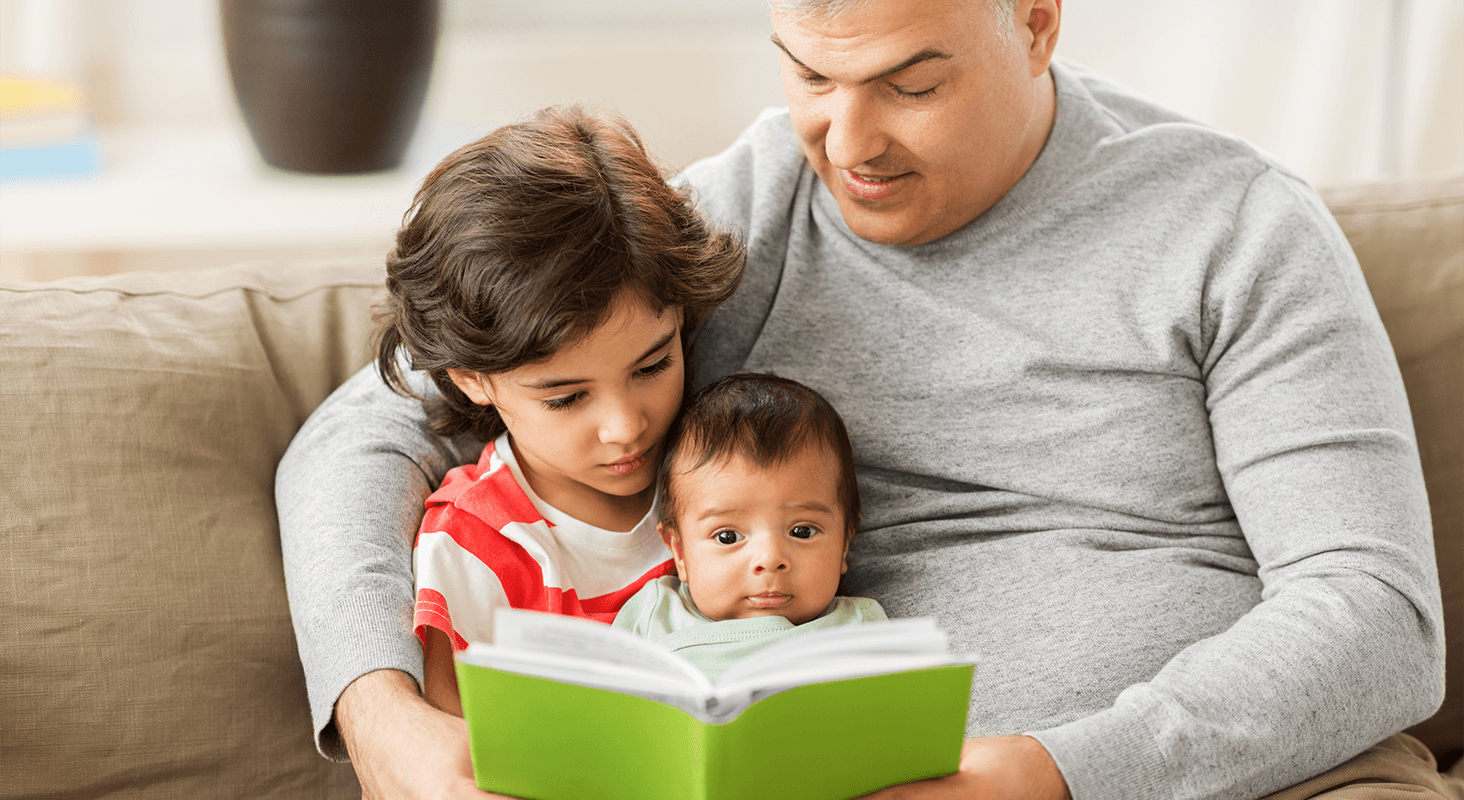
How do I choose which books to read to my baby?
The best baby books are the ones that you enjoy reading. Choose books that call out to you because you love the pictures or the words or because you loved them as a child. If the book is interesting or meaningful to you, it will be more fun to read (over and over again). And when it's more fun for you, it will be more fun for your baby! There are several organizations that provide book recommendations and educational resources for parents and children in Illinois.
When should I read with my baby?
You can read with your baby any time. But when you make reading part of your routine, like at bedtime for example, your baby will come to expect some cuddles with a book every night. Get into the habit of looking at books with your baby early on. The more you do it, the more you and your baby will love that special time together.
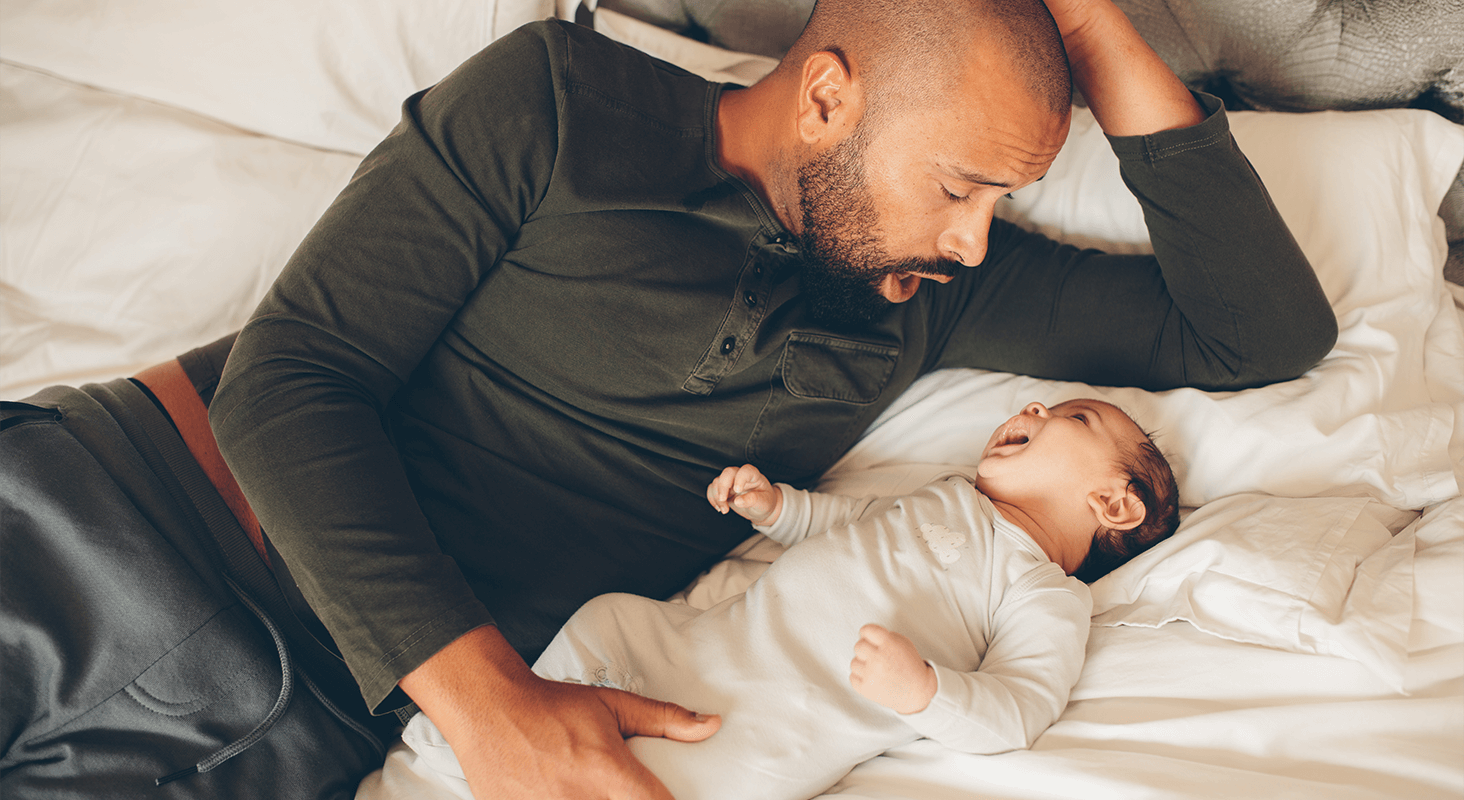
The Power of a Song
Singing with your baby (even if you don't think you can sing) is a great way to share your love and pass down traditions, culture, and language. You might notice that your baby likes some songs more than others. Many babies even recognize songs that they heard in the womb. You can sing anything to your baby: lullabies, songs you remember from when you were little, or the latest hits. Whatever song you choose, singing is a great way to bond and share happy times with your baby.
The Power of Play
Children learn through play with others and on their own. Play changes as your baby grows and gains new skills. It may just be you smiling, talking, and being silly at first. Over time, your baby will be more and more a part of the game.
6-8 WEEKS
Between 6-8 weeks, babies develop their social smile. They smile on purpose, to catch your attention, and to be close with you.
4-6 MONTHS
At around 4-6 months, babies start to hold on to a rattle or a spoon and shake it around, and they begin to laugh! Everything goes in their mouth, because that’s how they explore their world.
8-9 MONTHS
Peek-a-boo is a great game for 8- to 9-month-olds when their memory is getting better.
12 MONTHS
By 1, babies start pointing to get your attention and begin using their hands more to explore. They’re also more mobile, so they can crawl, pull up to stand, and even take a couple of steps holding on, so play that involves movement becomes more fun.
15-18 MONTHS
By 15-18 months, toddlers start trying to figure out how things work. They like to take things in and out, press buttons to make things happen, imitate your actions, and even start to play pretend games!
The types of toys your baby will enjoy will also change as they get older. For now, the best toy for your baby is YOU—your voice, your smile, your touch, your attention, and your love!
Additional Reading
Infant Attachment
Your relationship with your baby is a special one, and it starts the day they are born.
Milestones
Learn about the “milestones” that you and your baby's doctor will track together.
Tummy Time
Learn about a great way to help your baby strengthen and learn new skills.
